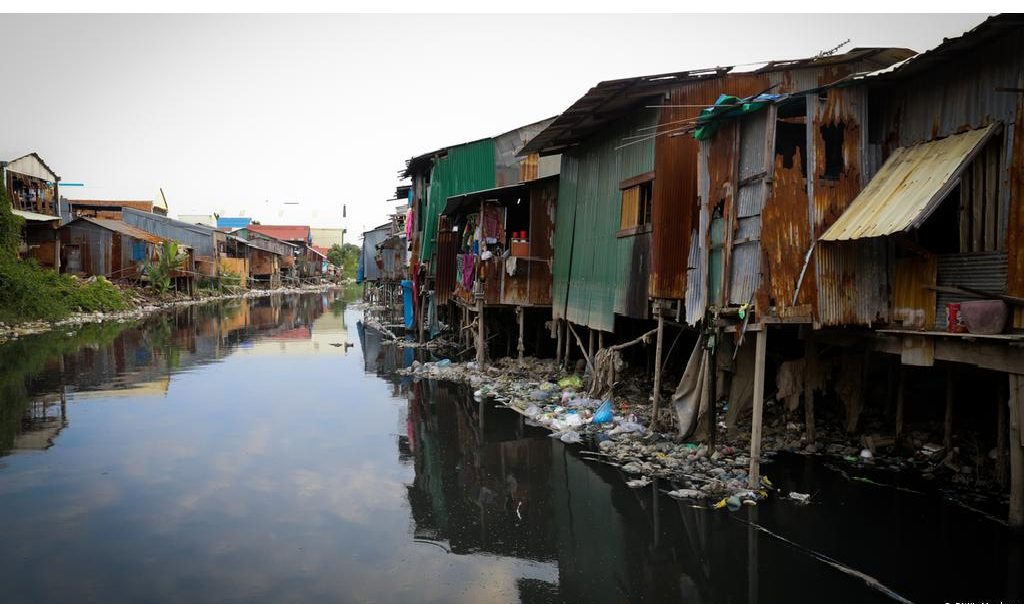Phnom Penh, 9 September 2022 (TDI): Cambodia and Germany agree to collaborate with each other on Waste Water Management.
Accordingly, the Ministry of Environment of Cambodia (MoE) and the German development agency (GIZ) helped a meeting to discuss the prospects of wastewater management in Cambodia. Park Sokha Ravuth, Director General of the Environmental Protection Department at the Ministry of Environment headed the meeting on behalf of Cambodia.
Cambodia, Germany Sign Agreement on Waste Management Cooperation https://t.co/4Jof757Ote pic.twitter.com/5pUHMlkS7d
— Office of Cambodian PM 🇰🇭 (@PeacePalaceKH) September 9, 2022
On the other hand, Günter W. Riethmacher and Frank Jattke represented GIZ at the meeting.
Consequently, both sides signed an agreement on the project on ASEAN Municipal Solid Waste Management Enhancement (AMUSE). both parties signed the agreement on the 7th of September.
Under this agreement, a project will be implemented in Siem Reap, a province of Cambodia and home to the second-largest city of Cambodia. Within the framework of this project, authorities will implement upgraded Waste Water management in the province.
Moreover, the project aims to contribute to improving the environmental quality in medium-sized cities in ASEAN. It aims to fulfill these goals by capacity building and recycling solid waste.
Cambodia’s Waste Management:
Cambodia is working on waste management in different sectors. The construction sector is an important pillar of the Cambodian economy and continues to grow. Effective management of construction and demolition waste (C&D) is collected, treated, and disposed of by the informal sector on a contractual basis.
It is also working to manage medical waste, especially in Phnom Penh where around 40 tonnes of medical waste are generated each month. Cambodian Red Cross is managing a Medical Waste Management Unit (MWMU) for this. Additionally, some hospitals have set up in-house incinerators whereas others continue to mix medical waste with general waste.
Additionally, the development of the Cambodian consumer economy has led to a significant increase in e-waste; particularly TVs, PCs, refrigerators, and air conditioners. An informal network of waste pickers collects recyclable materials from e-waste. The network exports valuable components picked to other countries.
In 2008, the MoE developed Cambodia’s interpretation of the 3R (reduce, reuse, recycle) strategy, supported by the United Nations Environment Programme. Cambodia has developed several regulations, guidelines, and initiatives to deal with waste. In view of this, it implemented Electrical and Electronic Equipment Waste Management in 2016.
This aimed to prevent the disposal of e-waste into rivers or dumps by stipulating penalties for individuals and businesses.
Moreover, the MoE has also introduced a ban on plastic bags. The new regulation aims to reduce the use of plastic bags and styrofoam containers. It also aims to find a sustainable alternative to single-use plastics.
Germany-Cambodia Relations:
Germany has expressed its support for all kinds of development in Cambodia over the years. Both countries have enjoyed good diplomatic and bilateral relations since 1967.
In May 2021, Germany pledged development aid totaling 71.3 million euros for the improvement of living conditions in Cambodia. Moreover, Germany is also supporting Cambodia in projects on reconciliation and humanitarian de‑mining.
Additionally, both countries also collaborate in the trade and investment domain. Correspondingly, Germany is also helping Cambodia in supporting the preservation of the country’s cultural heritage.






